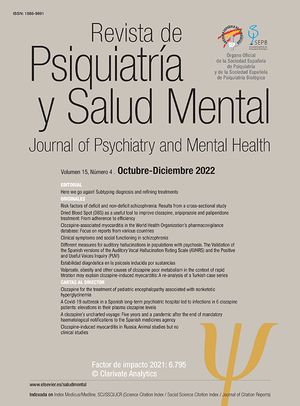Patients with bipolar disorder (BD) are frequently exposed to traumatic events which worsen disease course, but this study is the first multicentre randomised controlled trial to test the efficacy of a trauma-focused adjunctive psychotherapy in reducing BD affective relapse rates.
Materials and methodsThis multicentre randomised controlled trial included 77 patients with BD and current trauma-related symptoms. Participants were randomised to either 20 sessions of trauma-focused Eye Movement Desensitization and Reprocessing (EMDR) therapy for BD, or 20 sessions of supportive therapy (ST). The primary outcome was relapse rates over 24-months, and secondary outcomes were improvements in affective and trauma symptoms, general functioning, and cognitive impairment, assessed at baseline, post-treatment, and at 12- and 24-month follow-up. The trial was registered prior to starting enrolment in clinical trials (NCT02634372) and carried out in accordance with CONSORT guidelines.
ResultsThere was no significant difference between treatment conditions in terms of relapse rates either with or without hospitalisation. EMDR was significantly superior to ST at the 12-month follow up in terms of reducing depressive symptoms (p=0.0006, d=0.969), manic symptoms (p=0.027, d=0.513), and improving functioning (p=0.038, d=0.486). There was no significant difference in dropout between treatment arms.
ConclusionsAlthough the primary efficacy criterion was not met in the current study, trauma-focused EMDR was superior to ST in reducing of affective symptoms and improvement of functioning, with benefits maintained at six months following the end of treatment. Both EMDR and ST reduced trauma symptoms as compared to baseline, possibly due to a shared benefit of psychotherapy. Importantly, focusing on traumatic events did not increase relapses or dropouts, suggesting psychological trauma can safely be addressed in a BD population using this protocol.
Artículo
Comprando el artículo el PDF del mismo podrá ser descargado
Precio 19,34 €
Comprar ahora











